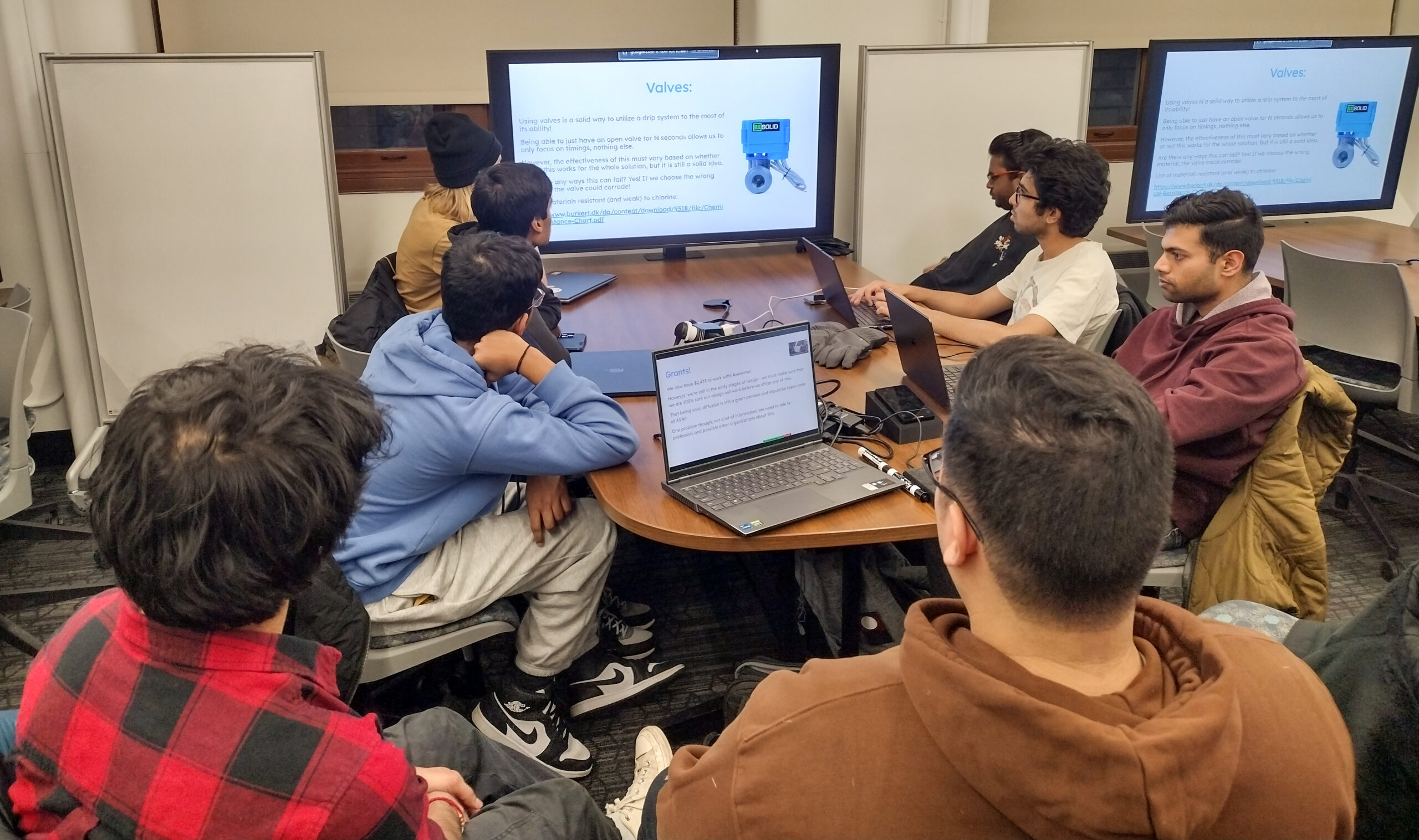University of Minnesota Project SEVA is a group of students pursuing a vision of international clean water.
Byline: By Sam Hill
For most American students, access to clean water is unremarkable. For the student club SEVA, it is one of the most important issues in the world.
SEVA, the Sanskrit word that describes the act of selfless service, is a University club with the mission of creating an economical water disinfection system for countries like Nepal and India. Now, club members are working every Friday to have a product by the end of this year.
SEVA Engineering Manager Manan Chaturvedi said club members plan to go to rural areas of Nepal to deploy their water disinfection system by the summer of next year. So far, he said, the group has been brainstorming, designing and narrowing down the final concept.
SEVA, a club officially formed last fall from students who grew up in developing countries, selected water as its engineering focus because access to it is an international problem, said SEVA President Bebas Dhungana.
“Like here in the United States, we don’t think about water being a fundamental issue,” Dhungana said. “But in developing countries, particularly in Nepal or India, it is a huge issue when people die.”
Water everywhere, still struggling
Dhungana said he grew up and lived in Nepal for six years, and could see the effects water borne illnesses had on people.
Dhungana said Nepal has less than 1% of the world’s population but contains more than 2% of the world’s clean water. He added countries facing issues like economic stability suffer the worst when it comes to water problems.
“We decided that we should start the club, not just because of our own personal experiences, but also to the fact that this country has water everywhere and it’s still struggling,” Dhungana said. “Why don’t we focus on this country and hopefully expand to other countries in the future?”
Dhungana said the club grew out of a partnership with the Diyalo foundation and the Phutung Research Institute, organizations that contribute research and guidance to the project of fixing costs of water systems. After SEVA initially discussed their project idea with Diyalo, he added, they contacted the Phutung Research Institute to begin the project.
He added while SEVA’s research partners are working on detecting contaminants in water, SEVA is focusing specifically on a disinfection system.
Dhungana said SEVA’s partners estimate full fledged water disinfection systems averaging about $100,000. He said SEVA’s goal is to lower this cost to a couple thousand and eventually export a new model to other developing countries.
“The goal of it is not just to stay in Nepal or stay in India,” Dhungana said. “It is to provide this low cost system to any country that really needs it.”
Chaturvedi said that different countries need different water system solutions. He added that all parts of the system need to be procurable in Nepal.
“One of the most important steps, I would say, is considering what is available within the country,” Chaturvedi said. “Especially within Nepal, it’s quite a difficulty to be able to get materials from outside, simply because import taxes are so high.”
Chaturvedi said one of the driving factors in selecting Nepal for the project was Bebas’ passion for working and visiting there. Chaturvedi said as someone from a neighboring country he also wants to experience Nepal’s culture.
“I have more of an interest just because it’s a neighboring country of India, and I’ve been to India just a little bit with my family,” Chaturvedi said. “It would be interesting to see the differences that exist between the two countries in person, because I’ve only seen a scant few differences in America.”
Moving forward
SEVA Treasurer Mumtaz Sheikh – Mohamed said SEVA was a great way for students to get technical experience regardless of their background or education level. She added there is always a place for everybody to contribute.
“People should come to SEVA if they can,” Sheikh Mohamed said. “We are looking for more members, especially on the engineering side and the operation side.”
Chaturvedi said SEVA is also a great research opportunity for people at the University of Minnesota. He added that he gets leadership experience and gets to be a part of something bigger.
“The best part about this, it’s the first time that I’ve really been able to work on a project where I’m like, ‘Oh, shit,’” Chaturvedi said. “This is something that could impact millions of people across the entire world.”

